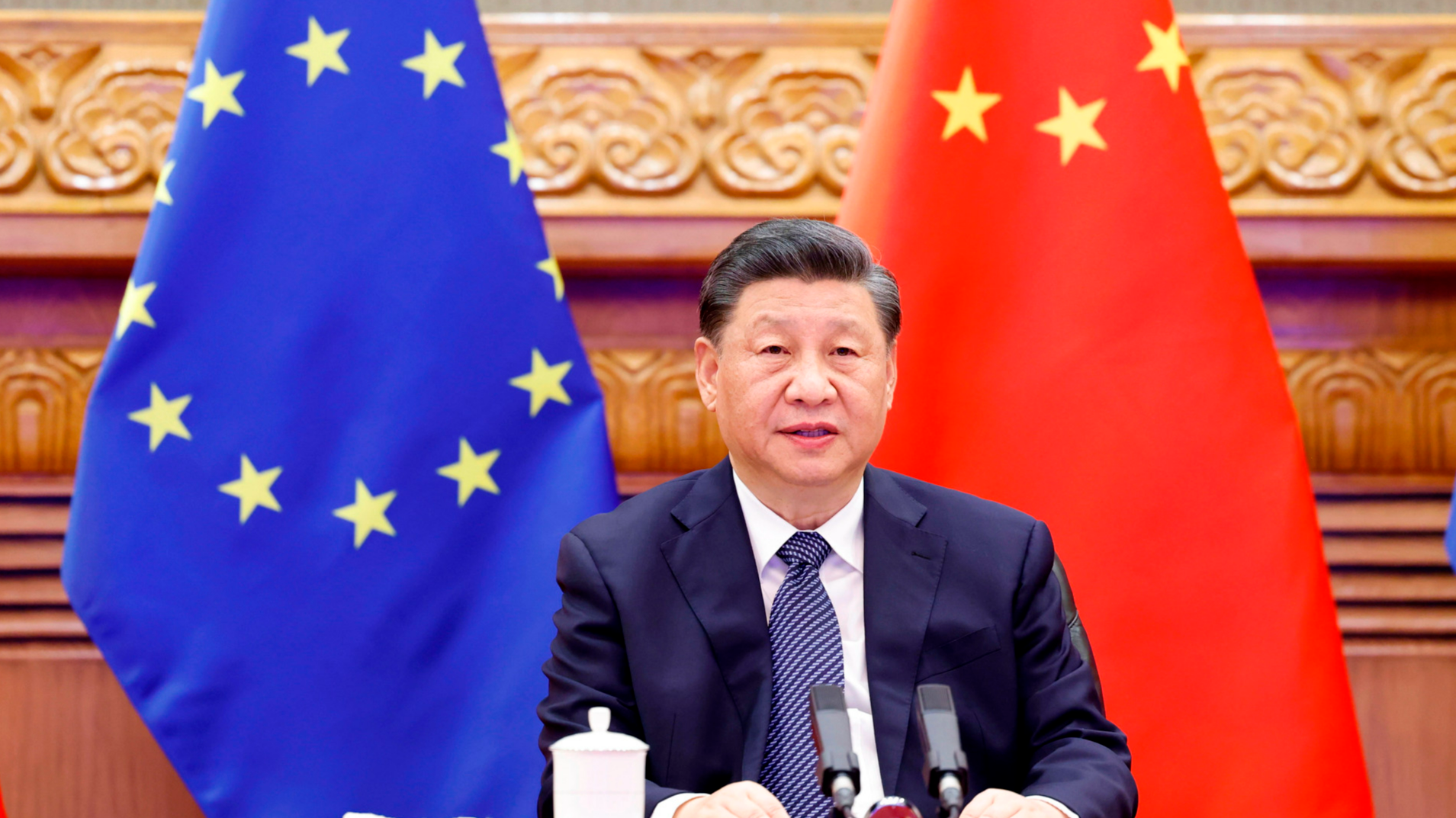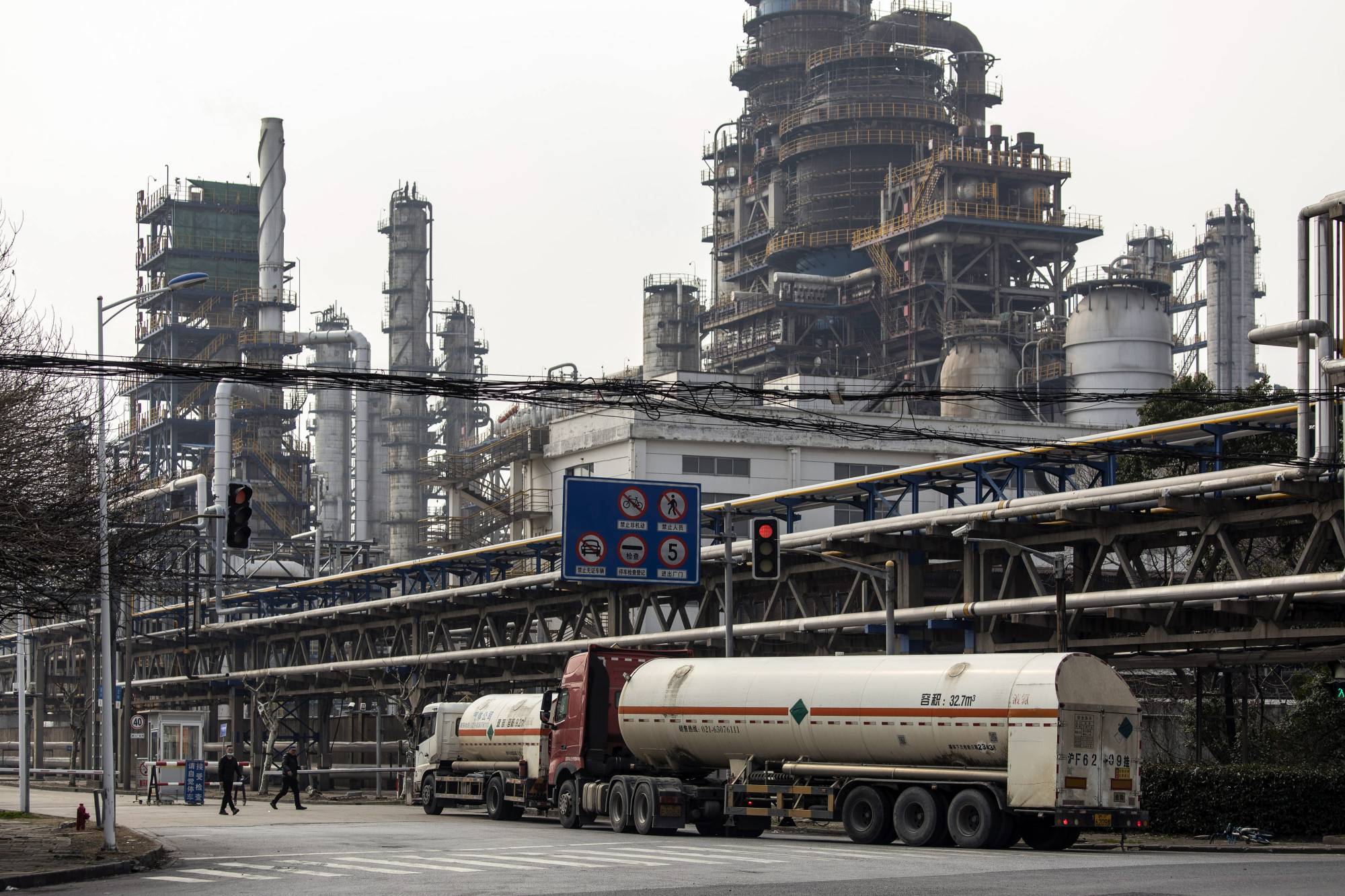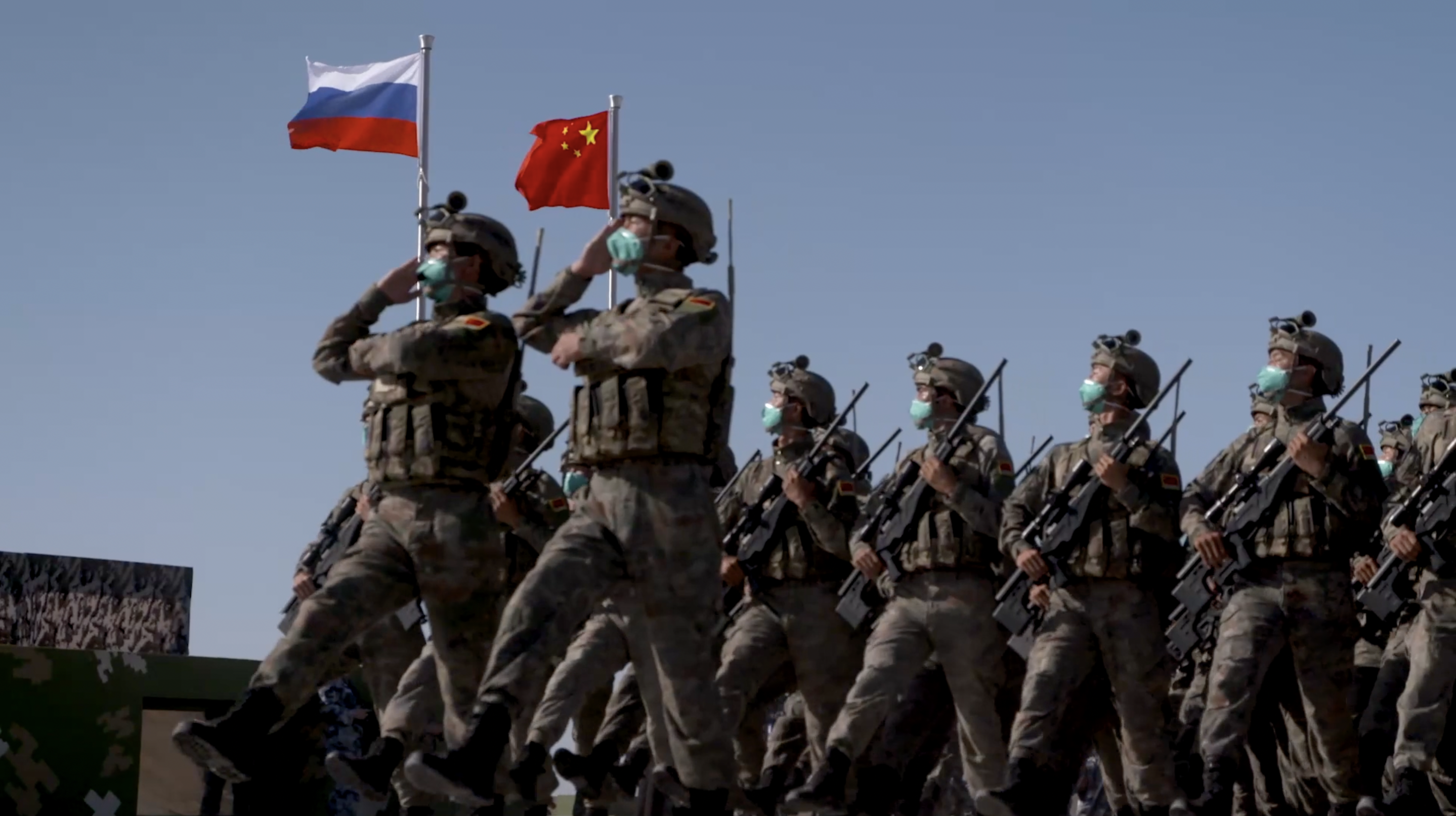News
China Threatens Retaliation if EU Sanctions Chinese Companies Supplying Russia

China has threatened the European Union (EU) that Beijing will respond “strictly and strongly” to any restrictions imposed for companies supplying Russia with so-called dual-use commodities that may be used for both military and civilian purposes.
The EU’s executive branch has suggested imposing tough trade restrictions on certain Chinese companies as part of its efforts to tighten down on corporations supplying the Kremlin with prohibited items and technologies that have supported its war machine in Ukraine.
A top European Union official encouraged the bloc’s 27 member nations on Tuesday to impose trade sanctions on countries that assist the Kremlin in circumventing the bloc’s sanctions against Russia, prompting China to threaten retaliation if targeted.
During a visit to Kyiv, European Commission President Ursula von der Leyen stated that the measures, which would set a new precedent for EU action, should be included in a new round of Russia sanctions being discussed by the member countries.
“Recently, we’ve seen an increase in highly unusual trade flows between the European Union and certain third countries.” “These goods then end up in Russia,” von der Leyen stated as he stood next to Ukrainian President Volodymyr Zelenskyy.
China using intermediary countries
She did not name the countries, but EU officials have long expressed worry over some trade flows through China and Iran.
“If we see that goods are going from the European Union to third countries and then ending up in Russia, we could propose to the member states to sanction those goods,” von der Leyen told reporters.
Any sanctions must be approved unanimously by all 27 members. Over the last few months, von der Leyen’s panel has become in charge of recommending which sanctions to impose, leaving member countries to work out their differences, often over several weeks.
“This tool will be used only as a last resort, after a thorough risk assessment and approval from EU member states.” “However, there should be no doubt that we work against sanctions evasion,” she stated.
China’s foreign minister Qin Gang, stated that if the EU took action against Chinese enterprises doing legitimate business in Russia, Beijing would retaliate strongly.
Following a meeting with his German counterpart in Berlin, Qin Gang stated that Beijing had regulations prohibiting the delivery of guns to crisis areas. Simultaneously, he insisted that “exchange and cooperation between Chinese and Russian companies” be allowed to continue.
“We are strictly opposed to some countries using their own domestic laws, their long arm jurisdiction, to impose one-sided sanctions against China,” Qin added, according to an official translation. “In such a case, we would also react strongly to this and defend the legitimate interests of our country and our companies.”
 China supplying dual use commodities
China supplying dual use commodities
German Foreign Minister Annalena Baerbock emphasised that any penalties will target individual firms, not countries, that sell crucial components to Russian armaments manufacturers, including so-called dual use commodities.
“This is not directed at any particular country, but rather at these sanctioned goods,” she told reporters in Berlin. “However, we expect everyone, including China, to apply appropriate pressure to their companies.”
Since President Vladimir Putin ordered his forces into Ukraine on February 24, the EU has placed ten rounds of sanctions on Russia. Banks, corporations, and markets have all been impacted, including elements of the volatile energy sector. Asset freezes and travel bans have been imposed on nearly 1,000 officials.
Much effort has gone into blocking loopholes so that crucial items to Putin’s war campaign do not pass through. Apart from penalties targeting Iranians suspected of sending drones to Russia, this is the first time efforts to target trade via other countries have been publicized.
Previous sanctions have been agreed in just months, which is extremely swift for the EU. However, new measures are becoming increasingly difficult to support because they harm the economic and political interests of some member countries while aiming for the Kremlin.
China and Russia have been strengthening their ties in recent years and have developed a closer relationship, often referred to as a strategic partnership. The two countries have worked together on a range of issues, including defense, energy, and foreign policy.
Joint military exercises
Some of the factors driving their relationship include shared concerns about the dominance of the United States in global affairs, as well as mutual economic interests. Russia has been seeking to diversify its energy exports away from Europe, while China is hungry for natural resources to fuel its rapidly growing economy.
In recent years, the two countries have also conducted joint military exercises and signed a number of agreements to deepen their cooperation in the areas of defense and security. However, it’s worth noting that while China and Russia may have shared interests in some areas, they also have their own separate goals and agendas, and their partnership is not without its challenges and tensions.
The European Union (EU) has imposed sanctions on Russia in response to a range of issues, including Russia’s annexation of Crimea in 2014, its involvement in the conflict in eastern Ukraine, and its alleged role in the poisoning of Russian opposition leader Alexei Navalny in 2020.
The EU sanctions against Russia have included travel bans and asset freezes on individuals and entities deemed responsible for the actions that the EU has condemned. These measures are often targeted at Russian government officials, military commanders, and individuals who are believed to have played a role in human rights violations or the suppression of political opposition.
In addition to targeted sanctions against individuals and entities, the EU has also imposed broader economic sanctions on Russia. For example, the EU has restricted Russia’s access to capital markets and banned imports of certain goods, such as equipment used in the oil and gas industry.
Russia has responded to the EU sanctions with its own retaliatory measures, such as banning imports of certain EU products and restricting travel by EU officials.
Overall, the EU sanctions on Russia are part of a broader effort to pressure Russia to change its behavior and respect international norms and agreements. However, the effectiveness of the sanctions in achieving these goals is a matter of debate, and there are concerns about the impact of the sanctions on both the Russian and European economies.


 China supplying dual use commodities
China supplying dual use commodities





























